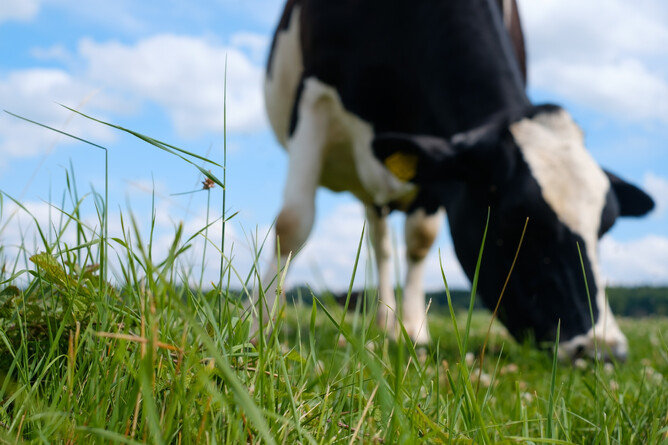In the coming months, as plants grow rapidly after a hot, dry summer - while mornings remain chilly and overcast - conditions are ideal for nitrate toxicity. Young, fast-growing grass and recent nitrogen fertiliser application increase the risk.
If you’re concerned that a pasture coming up in your rotation may be high in nitrates, it’s best to test it. A cow can die within one hour of eating a high level of nitrates, so prevention is a lot better than trying to deal with the disastrous consequences of having nitrate toxicity on a herd scale.
You can bring in a sample of grass to us for testing. Alternatively, we sell nitrate kits so you can test your pasture on-farm and get real-time results before deciding to graze a paddock that day.
If you have a certain paddock or area of your farm that is known to be high in nitrates, here are a few basic management practices you can follow to decrease the risk:
Don’t put hungry stock onto a pasture with moderate to marginally high nitrate levels. This means not letting the cows go from milking straight onto these paddocks. It’s best to let them graze for about three hours on a low-nitrate pasture before moving them into the new paddock that has higher nitrate levels. This way they’ll be full and won’t gorge the grass.
Only graze any marginally high-nitrate pasture for a maximum of one hour. Moderate-nitrate pasture can be grazed for a few hours, but it’s best to offer plenty of hay as well.
Never graze pastures with very high levels of nitrate.
Nitrate levels are highest in the morning and decrease as the day goes on, so it’s best to graze cows on pastures with higher nitrate levels in the early afternoon.
Nitrate levels can vary from day to day. The worst conditions are warm and overcast days.
Signs to watch for in suspected nitrate toxicity include:
Discomfort and kicking at their abdomen,
Getting up and down frequently,
Increased breathing effort and rate,
Eventual difficulty standing and collapse.
Remember, all classes of stock can get nitrate poisoning, from calves to cows.
If you are worried about the levels of nitrates on your farm, test your grass! If you suspect a nitrate toxicity outbreak, time is critical, so call us as soon as possible.

